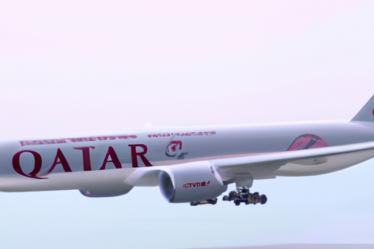
The Impact of Frequent Flyer Program Competition on Delta’s SkyMiles Loyalty
Delta Air Lines is one of the largest and most well-known airlines in the world. With a vast network of destinations and a reputation for excellent service, Delta has built a loyal customer base over the years. One of the key ways that Delta has fostered this loyalty is through its SkyMiles loyalty program. However, like any business, Delta faces challenges in building and maintaining this loyalty.
One of the biggest challenges that Delta faces in building SkyMiles loyalty is the competition from other frequent flyer programs. In today’s travel industry, almost every major airline has its own loyalty program, offering similar benefits and rewards to customers. This means that Delta is not only competing with other airlines for customers, but also for their loyalty.
To overcome this challenge, Delta has had to find ways to differentiate its SkyMiles program from the competition. One way that Delta has done this is by offering unique benefits and rewards that are not available through other programs. For example, Delta offers its SkyMiles members the ability to earn and redeem miles on a wide range of partner airlines, giving them more options and flexibility when it comes to using their miles. This sets Delta apart from other airlines and gives customers a reason to choose Delta over the competition.
Another challenge that Delta faces in building SkyMiles loyalty is the perception that frequent flyer programs are not as valuable as they once were. In the past, frequent flyer programs were seen as a way for customers to earn free flights and other valuable rewards. However, in recent years, airlines have made changes to their programs that have made it more difficult for customers to earn and redeem miles. This has led to frustration and a decrease in the perceived value of these programs.
To address this challenge, Delta has made efforts to improve the value of its SkyMiles program. For example, Delta has introduced new ways for customers to earn miles, such as through credit card partnerships and online shopping portals. Additionally, Delta has made changes to its redemption options, allowing customers to use their miles for a wider range of rewards, including upgrades and merchandise. These efforts have helped to restore some of the value to the SkyMiles program and keep customers engaged and loyal.
Finally, Delta faces the challenge of keeping up with changing customer expectations and preferences. In today’s digital age, customers expect a seamless and personalized experience when it comes to loyalty programs. They want to be able to easily track their miles, redeem rewards, and receive personalized offers and promotions. Delta has had to invest in technology and infrastructure to meet these expectations and provide a user-friendly experience for its SkyMiles members.
In conclusion, Delta faces several challenges in building and maintaining loyalty to its SkyMiles program. The competition from other frequent flyer programs, the perception of decreased value, and changing customer expectations all pose challenges for Delta. However, through unique benefits and rewards, improvements to the program’s value, and investments in technology, Delta has been able to overcome these challenges and continue to build loyalty among its customers.
Strategies to Overcome Customer Dissatisfaction and Retain SkyMiles Members

Delta Air Lines is one of the largest and most well-known airlines in the world. With a vast network of destinations and a reputation for excellent service, Delta has built a loyal customer base over the years. However, like any company, Delta faces its fair share of challenges, particularly when it comes to building and maintaining loyalty among its SkyMiles members.
One of the main challenges Delta faces is customer dissatisfaction. Many SkyMiles members have expressed frustration with the program, citing issues such as limited availability of award seats, high redemption rates, and complex rules and restrictions. These challenges can lead to a decrease in customer loyalty and a potential loss of business for Delta.
To overcome these challenges and retain SkyMiles members, Delta has implemented several strategies. First and foremost, the airline has focused on improving the availability of award seats. By increasing the number of seats available for redemption, Delta aims to provide more value to its loyal customers and make the program more attractive. This strategy not only helps to retain existing members but also attracts new customers who may be enticed by the improved availability.
In addition to increasing seat availability, Delta has also worked to simplify its redemption process. The airline has listened to customer feedback and made changes to its rules and restrictions to make it easier for members to redeem their miles. By removing unnecessary barriers and streamlining the process, Delta aims to enhance the overall customer experience and build trust and loyalty among its SkyMiles members.
Another strategy Delta has employed is offering more personalized rewards. The airline understands that each customer is unique and has different preferences and travel patterns. To cater to these individual needs, Delta has introduced a range of options for redeeming miles, including upgrades, lounge access, and even non-travel-related rewards such as merchandise or gift cards. By providing a variety of choices, Delta ensures that its SkyMiles members can find rewards that are meaningful and valuable to them, further enhancing their loyalty to the program.
Furthermore, Delta has invested in technology to improve the overall customer experience. The airline has developed a user-friendly mobile app and website that allows members to easily manage their SkyMiles accounts, track their progress, and redeem miles. By providing a seamless and convenient digital platform, Delta aims to make the loyalty program more accessible and engaging for its members.
Lastly, Delta has focused on communication and transparency. The airline understands the importance of keeping its members informed about program updates, promotions, and changes. Delta regularly communicates with its SkyMiles members through email newsletters, social media, and personalized messages. By being transparent and proactive in its communication, Delta aims to build trust and maintain a strong relationship with its members.
In conclusion, Delta faces various challenges in building and maintaining loyalty among its SkyMiles members. However, the airline has implemented several strategies to overcome customer dissatisfaction and retain its loyal customer base. By improving seat availability, simplifying the redemption process, offering personalized rewards, investing in technology, and focusing on communication and transparency, Delta aims to enhance the overall customer experience and build long-term loyalty. With these strategies in place, Delta is well-positioned to continue growing its SkyMiles program and maintaining its status as a leading airline in the industry.
Analyzing the Role of Technology in Enhancing Delta’s SkyMiles Loyalty Program
Delta Air Lines has long been recognized as a leader in the airline industry, providing exceptional service and innovative solutions to its customers. One of the key aspects of Delta’s success is its SkyMiles loyalty program, which rewards frequent flyers with a range of benefits and perks. However, building and maintaining a successful loyalty program is not without its challenges, and Delta has had to overcome several obstacles along the way.
One of the main challenges faced by Delta in building its SkyMiles loyalty program is the ever-evolving role of technology. In today’s digital age, technology plays a crucial role in enhancing customer experiences and driving loyalty. Delta has recognized this and has made significant investments in technology to improve its loyalty program.
One way Delta has leveraged technology is through the use of mobile apps. The Delta app allows customers to easily manage their SkyMiles account, track their progress towards elite status, and redeem rewards. This convenience and accessibility have greatly enhanced the overall customer experience and made it easier for customers to engage with the loyalty program.
Another technological advancement that Delta has embraced is the use of data analytics. By analyzing customer data, Delta can gain valuable insights into customer preferences and behaviors. This allows them to tailor their loyalty program to better meet the needs and desires of their customers. For example, if data shows that a particular customer frequently travels to a specific destination, Delta can offer targeted promotions and rewards related to that destination, increasing the likelihood of customer engagement and loyalty.
However, with the use of technology comes the challenge of data security and privacy. Delta understands the importance of protecting customer information and has implemented robust security measures to safeguard sensitive data. This includes encryption, firewalls, and regular security audits. By prioritizing data security, Delta can build trust with its customers and ensure that their personal information is kept safe.
In addition to technology, another challenge faced by Delta in building its SkyMiles loyalty program is the increasing competition in the airline industry. With more airlines offering their own loyalty programs, Delta must find ways to differentiate itself and provide unique value to its customers.
One way Delta has addressed this challenge is through partnerships and alliances. By partnering with other airlines, hotels, and car rental companies, Delta can offer its customers a wider range of rewards and benefits. This not only enhances the value of the SkyMiles program but also gives customers more options and flexibility when redeeming their rewards.
Furthermore, Delta has focused on providing exceptional customer service as a way to differentiate itself from the competition. By going above and beyond to meet customer needs and expectations, Delta can build strong relationships with its customers and foster loyalty. This includes personalized interactions, proactive communication, and quick resolution of any issues or concerns.
In conclusion, Delta has faced several challenges in building its SkyMiles loyalty program, but through the use of technology and strategic partnerships, they have been able to overcome these obstacles. By leveraging mobile apps, data analytics, and prioritizing data security, Delta has enhanced the overall customer experience and increased engagement with the loyalty program. Additionally, by differentiating itself through partnerships and exceptional customer service, Delta has been able to stand out in a competitive industry. As Delta continues to evolve and adapt to changing customer needs, its SkyMiles loyalty program will undoubtedly remain a key driver of customer loyalty and satisfaction.


